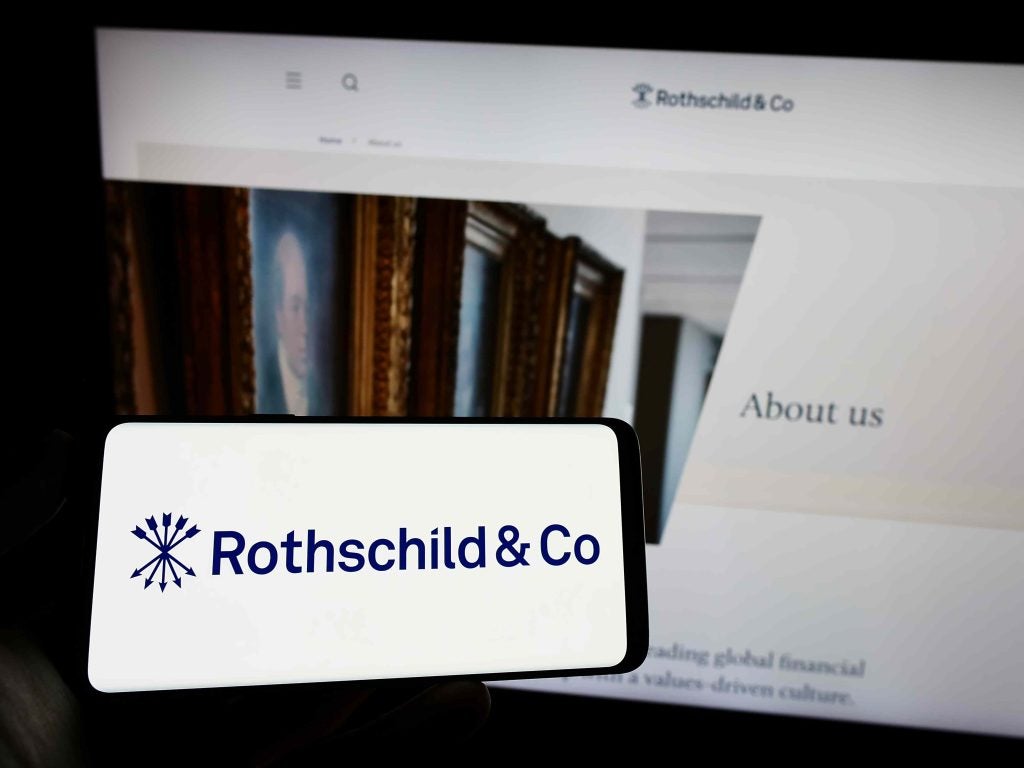
With the growing adoption of digital banking across all customer segments, automated advisory platforms are becoming de rigueur in wealth management. Robin Arnfield examines the offerings from leading North American digital advice platform providers
Some robo-adviser firms are expanding internationally, for example Canada’s Wealthsimple has launched in the US and UK, and Scalable Capital is expanding to the US following a €30m ($35.41m) infusion from BlackRock.
Will Trout, Celent’s head of wealth management (WM) research, says: “We’re already seeing this in Europe as MoneyFarm (Italy) and Scalable Capital (founded in Germany) have crossed borders.”
He adds: “This strategy is more attractive for firms founded in smaller markets than for those in bigger playing fields like the US and UK. So US firms like Hedgeable won’t seek to expand overseas, but will try to license their investment models to develop a steady, ongoing revenue stream.”
Trout says: “B2B platforms like Trizic and Robust Wealth directly target the B2B – and specifically the bank – market. These firms will enable community banks and smaller insurers to go to market with robo-solutions more quickly.”
CASE STUDIES
How well do you really know your competitors?
Access the most comprehensive Company Profiles on the market, powered by GlobalData. Save hours of research. Gain competitive edge.

Thank you!
Your download email will arrive shortly
Not ready to buy yet? Download a free sample
We are confident about the unique quality of our Company Profiles. However, we want you to make the most beneficial decision for your business, so we offer a free sample that you can download by submitting the below form
By GlobalData1: Betterment’s robo platform US-based Betterment is the first independent customer-facing robo-adviser platform to exceed $10bn in AuM. “Currently, we have $10bn in assets and 275,000 customers on our platform,” says a spokesperson for Betterment, which in July 2017 raised $70m in a new funding round.
Betterment’s recent enhancements include a mobile messaging feature enabling its financial experts to answer customers’ questions by text-based chats in the Betterment app. The feature is available to all Betterment customers, irrespective of their AuM. In January 2017, Betterment said qualifying customers can call its Certified Financial Planner-qualified advisers and licensed experts about their accounts and to seek advice.
Betterment Plus customers receive an annual planning call from Betterment’s experts, while Betterment Premium customers have unlimited phone access to the advisers.
2: BMO Bank of Montreal “Launched in 2016, BMO SmartFolio is directed at Canadian investors seeking handsoff investing, with a preference for digital services and from C$5,000 to invest,” a BMO Bank of Montreal spokesperson says.
After answering a series of personal and investment questions, SmartFolio clients are presented with a recommended model ETF portfolio. Once a client decides to proceed with this portfolio, they submit an account application for review by a registered representative of BMO Nesbitt Burns.
“Each model ETF portfolio has an asset allocation of equity and/or fixed income that aligns to the client’s investment objectives,” the BMO spokesperson says. “There are five model ETF portfolios ranging from the least risky to the riskiest, i.e. having the smallest percentage in equities to the largest.
“Our portfolio managers monitor the model ETF portfolios daily, and, where and when required, rebalance the model ETF portfolio to keep the client on track with their investment objectives.”
3: Fiserv US-based Fiserv has integrated digital advisory platforms from GoldBean, Marstone and Vestwell in its Unified Wealth Platform and in its Wealth Management Network, which connects participants across the managed accounts industry.
Cheryl Nash, president of investment services at Fiserv, says: “Fiserv serves 350 investment firms with over 4.5m investment portfolios and $1.4trn in assets managed on our Unified Wealth Platform.”
“This offers integrated capabilities supporting the full wealth management lifecycle (front, middle and back office) including portfolio management and trading; proposal and client on-boarding; model management; data, analytics, reporting and billing; goals-based advice; and portfolio accounting and performance.
“In addition, our Wealth Management Network enables digital collaboration between asset managers, broker dealers, banks and advisors.”
4: Marstone New York-based Marstone provides its automated advisory platform to WM firms such as Pershing, the custodian arm of BNY Mellon, and banking and WM technology vendors such as Fiserv.
Its platform links all a customer’s assets, from banking to loans and investments. Christopher LaVine, Marstone’s head of corporate development, comments: “We’re integrated with Pershing’s adviser- and clientfacing systems, and are onboarding multiple Pershing clients this summer.”
“We’re integrating with Fiserv to leverage the middle- and back-office infrastructure they supply to FIs. Fiserv offers various tools such as financial planning tools which we can integrate with our platform. In 2015, we partnered with IBM and its IBM Watson AI technology unit.”
In LaVine’s opinion: “Human advisers aren’t going away, so there’s an opportunity to provide a platform that powers technology-enabled human advisers.
Our technology automates many of the low-value interactions between advisers and clients, allowing advisers to focus on the big-picture items that add value to the relationship.
“There has been a view that digital is really for millennials and smaller-asset accounts, but HNW clients also want digital user experiences when investing. Research reports from Capgemini or Deloitte show that HNWIs are considering leaving their investment adviser as they can’t do things online and want to interact digitally.”
5: Merrill Lynch “Unlike pure technology-based robo-advisers, Merrill Edge Guided Investing combines technology with human expertise,” says David Poole, head of Merrill Edge advisory and client services.
Merrill Edge Guided Investing portfolios consist of ETFs screened and selected by Merrill Lynch investment experts.
“With Merrill Edge Guided Investing, clients use an intuitive digital questionnaire to tell us about their goals,” says Poole. “They receive a recommended investment strategy and portfolio aligned to their needs that is based on world-class research and financial expertise, as their portfolios are actively managed and rebalanced by Bank of America’s global wealth and investment management chief investment office.”
Poole adds: “We know from our recent Merrill Edge Report that Americans are embracing the notion of investing online. An April 2017 survey conducted for the report found that 13% of Americans are currently using robo-advisers or would consider using one in the next year. Those who use an online investing platform say it makes them feel more knowledgeable (51%), empowered (31%), and savvy (14 %).”
6: Morgan Stanley: The Wall Street Journal reports that this autumn Morgan Stanley will launch a robo-adviser called Morgan Stanley Access Investing.
Citing Securities and Exchange Commission filings, The WSJ said the platform will target investors with a minimum of $5,000, charging 0.45% of AuM annually.
7: US Bank Wealth Management Karen Wimbish, senior vice-president at US Bank Wealth Management, notes: “US Bank’s automated portfolio offering will be publicly launched this autumn for our online banking clients.
“We’re piloting it with our employees and building it out with our technology provider, FutureAdvisor. Our initial focus is helping clients save for their retirement.”
Wimbish says the automated advisory platform provides a portfolio consisting of ETFs that are automatically rebalanced as the market moves. “It allows you to maintain your allocations based on your risk profile and your time to retirement and ensure they are very closely aligned with the appropriate portfolio allocation across the sectors you’re interested in,” she says.
“So your portfolios will be correctly aligned as the markets move in these sectors.” Wimbish adds: “We white-label the trading algorithms from FutureAdvisor, but the actual portfolio selections and the allocations and the specific investments are done by US Bank Investments, our asset management group.”
8: Vestwell New York-based Vestwell’s digital advisory platform specialises in 401(k) & 403(b) retirement plan services for financial advisers and their clients. The company has technology partnerships with Fiserv and financial account data aggregation provider Quovo.
“Since launching our platform nine months ago, Vestwell has contracted with about 50 advisory firms, equipping thousands of advisors to design and service their 401(k) and 403(b) clients,” says Aaron Schumm, Vestwell’s CEO.
“We enable advisory firms to sit across multiple record-keepers, multiple custodians, executing brokers, investment managers, trust companies, under a unified user experience.”
9: Wells Fargo “Wells Fargo launched a limited customer pilot of its Intuitive Investor digital advisor platform in North Carolina and Minnesota in July 2017, leading up to a national launch this autumn,” a spokesperson for Wells Fargo explains.
Based on technology from SigFig, Intuitive Investor is designed to deliver financial advice to new segments of customers. These particularly include emerging investors who are comfortable interacting online and want help building and managing diversified portfolios at a low cost.
“Integrated with our wf.com banking services, it will provide daily portfolio health checks, automatic rebalancing, and tax loss harvesting,” the Wells Fargo spokesperson continues.
“Consumers can begin investing with a $10,000 minimum investment and a 0.50% annual advisory fee, with unlimited access to licensed, phone-based financial advisors and access to strategy and research from the Wells Fargo Investment Institute.”
DEPARTMENT OF LABOR
In the opinion of Wimbish from US Bank Wealth Management, a recently introduced fiduciary rule in the US is likely to encourage WM firms to deploy automated advisers for their smaller clients who do not justify personalised service from a human financial adviser.
“Many US financial institutions are limiting access to human financial advisers to people with sufficient assets under management to justify a customized portfolio,” she says.
The US Department of Labor introduced the Fiduciary Rule in June 2017 for financial advisers working with clients’ retirement accounts. The rule elevates the compliance status under which they operate from ‘suitability’ – ensuring clients’ funds are invested in accounts considered suitable for them – to ‘fiduciary,’ where the adviser is obliged to put the client’s best interests first.
This requires advisers to provide documentary evidence that they have acted in a fiduciary capacity and have captured all the advice they gave the client.
Aite Group analyst Bill Butterfield says that, assuming the new controversial rules are not repealed, the SEC could push to apply them across the entire WM industry.
“Advisers will have to spend much more time with their clients documenting the advice they gave them and proving they are meeting fiduciary standards,” says Wimbish. “The corollary is that this makes it very difficult to handle small accounts, as from a Fiduciary Rule perspective the time involved with a small account is the same as with a big account.”








